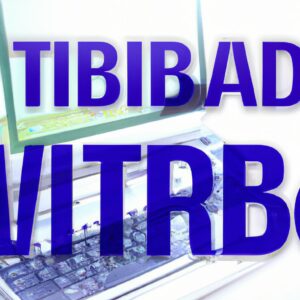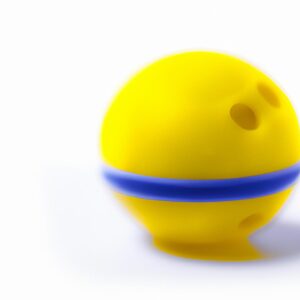**”Obstacle Course Training: Incorporating Mental Challenges to Enhance Problem-Solving Skills in Physical Fitness”**
# Obstacle Course Training: Incorporating Mental Challenges to Enhance Problem-Solving Skills in Physical Fitness
In the world of fitness, physical strength and endurance have long been the focal points of training regimens. However, there is a growing recognition of the importance of mental acuity in achieving overall wellness and performance. Obstacle course training (OCT) provides a unique platform to blend physical challenges with mental hurdles, enhancing not only your body but also your problem-solving skills. This blog post will explore how incorporating mental challenges in obstacle course training can elevate your fitness journey.
## The Intersection of Physical and Mental Fitness
### Understanding Obstacle Course Training
Obstacle course training involves navigating through a series of physical challenges designed to test strength, endurance, agility, and coordination. From climbing walls to crawling through mud, these courses are not just about brute physicality. They require participants to think critically, adapt quickly, and strategize their movements, making them an ideal framework for mental training.
### The Importance of Mental Challenges
Incorporating mental challenges into your training can significantly enhance your problem-solving skills. When faced with an obstacle, your mind evaluates various strategies to overcome it. This cognitive process fosters critical thinking, enhances resilience, and builds confidence—skills that are equally valuable in everyday life.
## Nutrition Tips for Optimal Performance
### Fuel Your Body and Mind
Just as physical training requires proper nutrition, so does mental training. A well-balanced diet is crucial for maintaining energy levels and cognitive function. Here are some nutrition tips to fuel your obstacle course training:
1. **Complex Carbohydrates**: Incorporate whole grains, fruits, and vegetables to provide sustained energy. Foods like oats and quinoa are excellent choices.
2. **Lean Proteins**: Include sources like chicken, fish, beans, and legumes to help repair and build muscle. Protein-rich snacks like Greek yogurt or nuts can also support muscle recovery.
3. **Healthy Fats**: Incorporate sources of omega-3 fatty acids, such as salmon and walnuts, for optimal brain function and to reduce inflammation.
4. **Hydration**: Staying hydrated is essential for both physical performance and cognitive clarity. Aim for at least eight 8-ounce glasses of water daily, adjusting for exercise intensity and duration.
5. **Mindful Eating**: Pay attention to your body’s hunger cues and avoid processed foods to maintain stable energy levels and enhance your focus during training.
## Exercise Advice: Mental Challenges in Action
### Designing a Well-Rounded Obstacle Course
Creating an obstacle course that emphasizes mental challenges can take various forms. Here are some ideas to integrate cognitive tasks into your training:
1. **Decision-Making Stations**: Set up multiple paths through an obstacle course that require participants to make quick decisions, such as choosing between climbing over or crawling under an obstacle. This encourages critical thinking while maintaining physical engagement.
2. **Memory Challenges**: Incorporate memory tasks, such as recalling a sequence of numbers or a specific pattern of movements before completing an obstacle. This engages your brain and enhances focus.
3. **Team Challenges**: Work with a partner or a group to solve problems collaboratively. This not only builds camaraderie but also enhances communication and strategic planning skills.
4. **Timed Trials**: Set time limits for completing obstacles, encouraging participants to think quickly and adapt their strategies as they progress through the course.
### Sample Obstacle Course Layout
– **Warm-Up**: Start with dynamic stretches and short sprints to prepare your body.
– **Obstacle 1**: Climb a wall while recalling a sequence of movements (e.g., left foot, right hand).
– **Obstacle 2**: Crawl under a net while solving a math problem (e.g., “What is 12 x 7?”).
– **Obstacle 3**: Navigate a balance beam while discussing a strategy for success with a partner.
– **Cool Down**: Finish with yoga stretches to promote recovery and mindfulness.
## Health Benefits of Obstacle Course Training
### Physical Benefits
– **Improved Strength and Endurance**: Regular training enhances muscle strength, cardiovascular fitness, and overall endurance.
– **Increased Agility and Coordination**: Navigating obstacles improves your coordination, balance, and agility, making you more adept in various physical activities.
### Mental Benefits
– **Enhanced Problem-Solving Skills**: The mental challenges integrated into your training foster cognitive flexibility, allowing you to approach problems from multiple angles.
– **Boosted Confidence**: Overcoming obstacles builds self-esteem and a sense of accomplishment, both in fitness and daily life.
– **Stress Relief**: Physical activity is a proven stress reliever, and combining it with mental challenges can lead to greater overall well-being.
## Conclusion
Obstacle course training is more than just a physical endeavor; it is an opportunity to cultivate mental resilience and enhance problem-solving skills. By incorporating mental challenges into your training, you not only improve your physical fitness but also develop essential cognitive abilities that can benefit you in all aspects of life. So, gear up, embrace the challenge, and transform your fitness journey into a holistic experience that nurtures both body and mind. Whether you’re a seasoned athlete or just starting, the obstacles you face today can pave the way for a stronger, more capable you tomorrow.















Post Comment